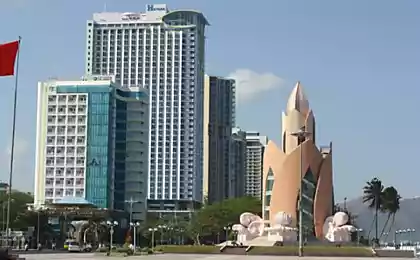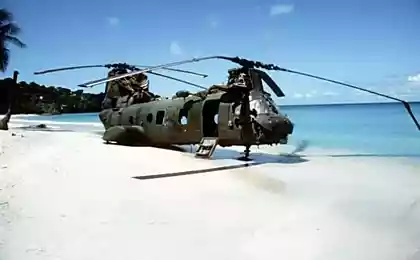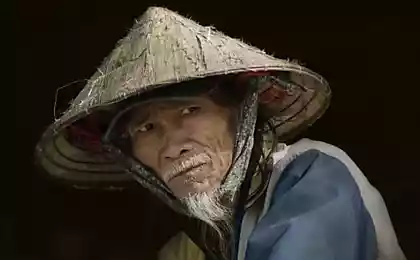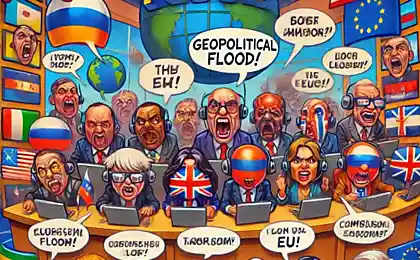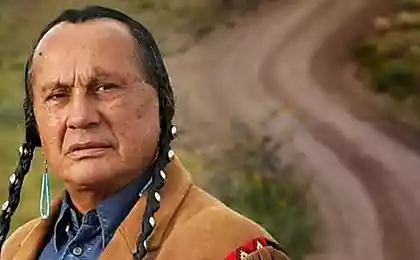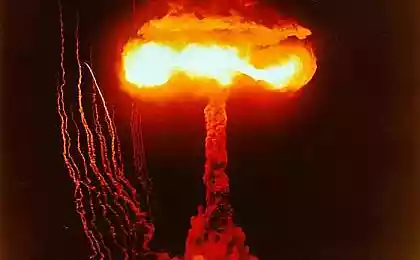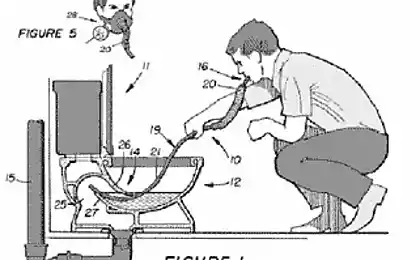916
The defeat of the US in Vietnam
January 15th, 1973, the US Army and its allies stopped conduct combat operations in Vietnam. Peacefulness of the US military due to the fact that after four years of talks in Paris the participants of the armed conflict have reached a certain agreement. A few days later, on January 27 it signed a peace treaty. Under the agreement US troops lost in 1965 killed 58 thousand people left South Vietnam. Until now, historians, politicians and the military can not clearly answer the question: "How the Americans lost the war if they did not lose a single battle?".
1. Infernal disco in the jungle. So American soldiers and officers called the Vietnam War. Despite the overwhelming superiority in weapons and forces (troop levels in Vietnam in 1968 is 540 thousand people) they were unable to defeat the guerrillas. Even the carpet bombing, during which US aircraft dropped on Vietnam 6, 7 million tons of bombs were not able "to drive the Vietnamese in the stone age." This loss of the US Army and its allies grew steadily. During the war, the Americans lost in the jungle 58 thousand people killed, 2300 missing and more than 150,000 wounded. In the list of official losses were not included Puerto Ricans, who were hired in the US Army, to get United States citizenship. Despite some successful military operation, President Richard Nixon realized that the final victory will not be able to win.
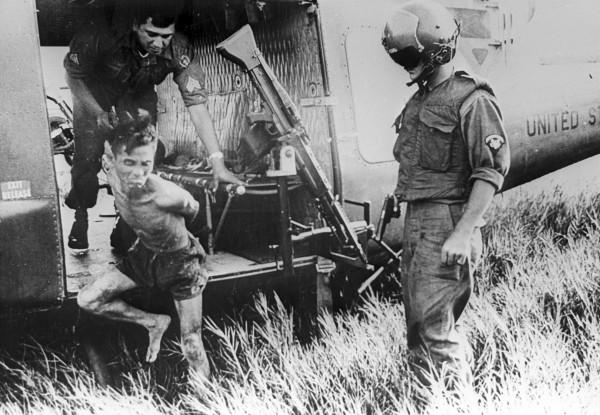
2. The demoralization of the US Army. Desertion during the Vietnam campaign was broad enough phenomenon. Suffice it to recall that the famous American heavyweight boxer Cassius Clay at the peak of his career, had converted to Islam and took the name Muhammad Ali, not to serve in the US Army. For this act, he was stripped of all titles and suspended from the competition for more than three years. After the war, President Gerald Ford in 1974 offered a pardon to all draft evaders and deserters. With the surrender were over 27 thousand people. Later, in 1977, the next head of the White House Jimmy Carter pardoned those who had fled from the United States, not to be called.
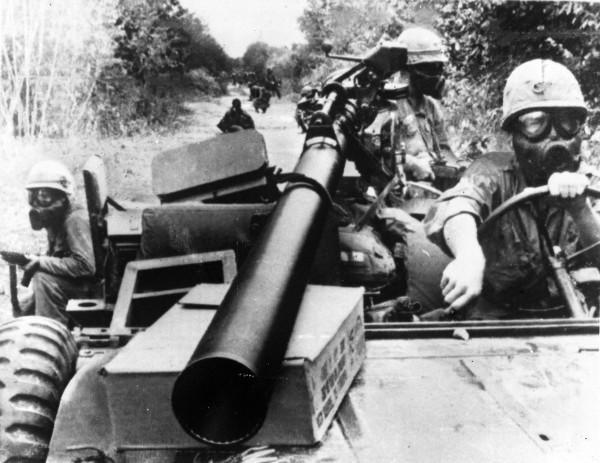
3. "We knew that stocks of bombs and missiles have exhausted before the morale of our soldiers," - said American historian and veteran of the war in Indochina David Hekvortu former vetkongovets Kao Bay. He added: "Yes, we were weaker in material terms, but our fighting spirit and will were stronger than you. Our war was right, and your - no. Your Marines knew it as well as the American people. " This position is shared by the historian Philip Davidson, who wrote: "Throughout the war, the United States a little thought about the political, economic and psychological consequences of their military operations. Nobody paid attention to the death of civilians, the destruction of unwanted, yet both produced negative political effect ».
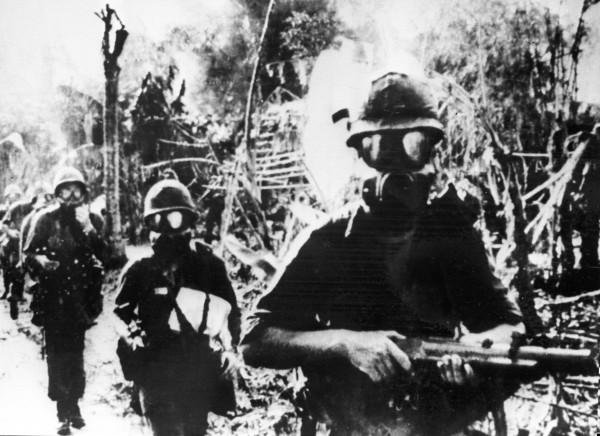
4. The People's War. Most of the Vietnamese on the side of the guerrillas. They provided them with food, intelligence, recruits and gave manpower. In his writings, David Hekvort quoted Mao Zedong's dictum that "the people are to the guerrilla what it is the water for the fish: remove the water - and the fish will die." "Factors soldered and cemented the Communists from the beginning, their strategy was revolutionary liberation war. Without this strategy, a Communist victory would have been impossible. Vietnam War should be viewed through the prism of the strategy of people's war, it is not a question of manpower and equipment, things like that are not related to the problem, "- wrote another American historian Philip Davidson.
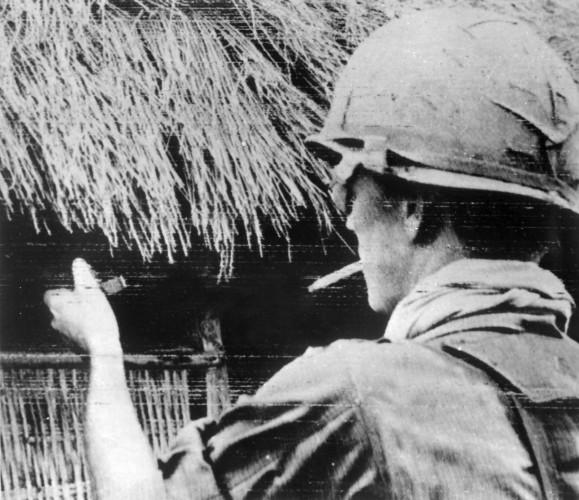
5. professionals against amateurs. Soldiers and officers of the Army of Vietnam were much better than the Americans prepared for war in the jungle, as the war for the liberation of Indochina since the Second World War. First, their opponent was Japan, followed by France, then the United States. "From May Hiep, I also met with Colonel Lee IOM and La Dang Viet Lev Mey. They are almost 15 years served battalion commanders, - says David Hekvort. - The average American battalion or brigade commander served in Vietnam for a period of six months. Lam Mei and could be compared to the coaches of professional football teams playing each season in the final of the super prize, while American commanders were rosy as a teacher of mathematics, put in place by our professional trainers sacrificed careerism. To become generals, our "players" have risked their lives, commanding battalions in Vietnam for six months, and America lost ».
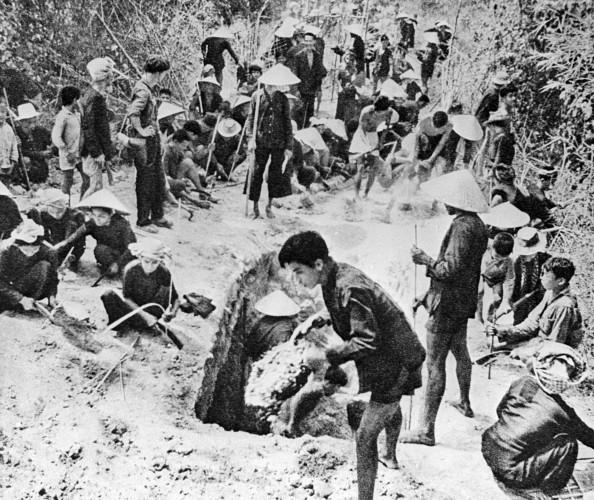
6. The anti-war protests and the mood of the American society. America was shaken by thousands of protests against the Vietnam War. The new movement, the hippies emerged from the young people protesting against the war. The culmination of the movement were the so-called "Walking to the Pentagon," when, in October 1967 in Washington DC gathered 100 thousand young people protesting against the war, as well as protests during the US Democratic Party convention in Chicago in August 1968. Suffice it to recall that opposed the war, John Lennon wrote the song "Give Peace a Chance." Among the military spread drug addiction, suicide, desertion. Veterans pursued "Vietnam syndrome," which is why thousands of former soldiers and officers of their own lives. In such circumstances, it was pointless to continue the war.
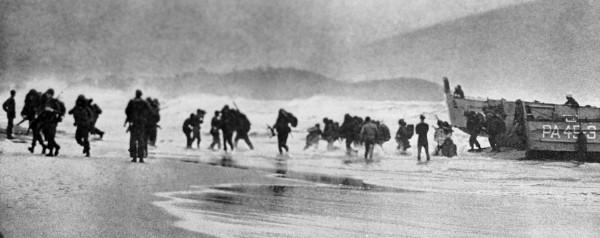
7. Help China and the USSR. Moreover, if the comrades from China mainly provide economic assistance and manpower, the Soviet Union provided Vietnam most perfect their weapons. So for roughly Soviet aid is estimated at 8-15 billion dollars, and the financial costs of the United States, based on current estimates, exceeded one trillion US dollars. Besides weapons Soviet Union sent military experts to Vietnam. From July 1965 to the end of 1974, the fighting was attended by about 6, 5 thousand officers and generals, as well as more than 4, 5 thousand soldiers and sergeants of the Soviet Armed Forces. In addition, military schools and academies of the USSR began training Vietnamese troops - more than 10 thousand people.
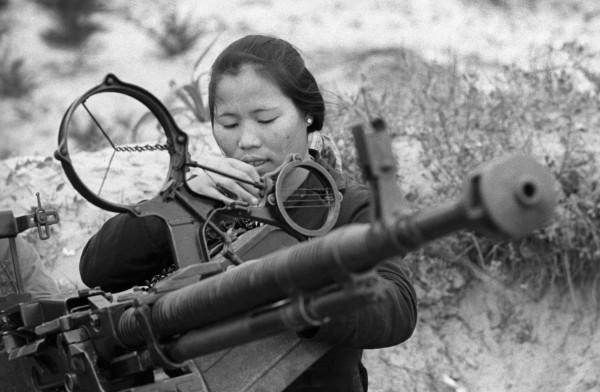
©
1. Infernal disco in the jungle. So American soldiers and officers called the Vietnam War. Despite the overwhelming superiority in weapons and forces (troop levels in Vietnam in 1968 is 540 thousand people) they were unable to defeat the guerrillas. Even the carpet bombing, during which US aircraft dropped on Vietnam 6, 7 million tons of bombs were not able "to drive the Vietnamese in the stone age." This loss of the US Army and its allies grew steadily. During the war, the Americans lost in the jungle 58 thousand people killed, 2300 missing and more than 150,000 wounded. In the list of official losses were not included Puerto Ricans, who were hired in the US Army, to get United States citizenship. Despite some successful military operation, President Richard Nixon realized that the final victory will not be able to win.

2. The demoralization of the US Army. Desertion during the Vietnam campaign was broad enough phenomenon. Suffice it to recall that the famous American heavyweight boxer Cassius Clay at the peak of his career, had converted to Islam and took the name Muhammad Ali, not to serve in the US Army. For this act, he was stripped of all titles and suspended from the competition for more than three years. After the war, President Gerald Ford in 1974 offered a pardon to all draft evaders and deserters. With the surrender were over 27 thousand people. Later, in 1977, the next head of the White House Jimmy Carter pardoned those who had fled from the United States, not to be called.

3. "We knew that stocks of bombs and missiles have exhausted before the morale of our soldiers," - said American historian and veteran of the war in Indochina David Hekvortu former vetkongovets Kao Bay. He added: "Yes, we were weaker in material terms, but our fighting spirit and will were stronger than you. Our war was right, and your - no. Your Marines knew it as well as the American people. " This position is shared by the historian Philip Davidson, who wrote: "Throughout the war, the United States a little thought about the political, economic and psychological consequences of their military operations. Nobody paid attention to the death of civilians, the destruction of unwanted, yet both produced negative political effect ».

4. The People's War. Most of the Vietnamese on the side of the guerrillas. They provided them with food, intelligence, recruits and gave manpower. In his writings, David Hekvort quoted Mao Zedong's dictum that "the people are to the guerrilla what it is the water for the fish: remove the water - and the fish will die." "Factors soldered and cemented the Communists from the beginning, their strategy was revolutionary liberation war. Without this strategy, a Communist victory would have been impossible. Vietnam War should be viewed through the prism of the strategy of people's war, it is not a question of manpower and equipment, things like that are not related to the problem, "- wrote another American historian Philip Davidson.

5. professionals against amateurs. Soldiers and officers of the Army of Vietnam were much better than the Americans prepared for war in the jungle, as the war for the liberation of Indochina since the Second World War. First, their opponent was Japan, followed by France, then the United States. "From May Hiep, I also met with Colonel Lee IOM and La Dang Viet Lev Mey. They are almost 15 years served battalion commanders, - says David Hekvort. - The average American battalion or brigade commander served in Vietnam for a period of six months. Lam Mei and could be compared to the coaches of professional football teams playing each season in the final of the super prize, while American commanders were rosy as a teacher of mathematics, put in place by our professional trainers sacrificed careerism. To become generals, our "players" have risked their lives, commanding battalions in Vietnam for six months, and America lost ».

6. The anti-war protests and the mood of the American society. America was shaken by thousands of protests against the Vietnam War. The new movement, the hippies emerged from the young people protesting against the war. The culmination of the movement were the so-called "Walking to the Pentagon," when, in October 1967 in Washington DC gathered 100 thousand young people protesting against the war, as well as protests during the US Democratic Party convention in Chicago in August 1968. Suffice it to recall that opposed the war, John Lennon wrote the song "Give Peace a Chance." Among the military spread drug addiction, suicide, desertion. Veterans pursued "Vietnam syndrome," which is why thousands of former soldiers and officers of their own lives. In such circumstances, it was pointless to continue the war.

7. Help China and the USSR. Moreover, if the comrades from China mainly provide economic assistance and manpower, the Soviet Union provided Vietnam most perfect their weapons. So for roughly Soviet aid is estimated at 8-15 billion dollars, and the financial costs of the United States, based on current estimates, exceeded one trillion US dollars. Besides weapons Soviet Union sent military experts to Vietnam. From July 1965 to the end of 1974, the fighting was attended by about 6, 5 thousand officers and generals, as well as more than 4, 5 thousand soldiers and sergeants of the Soviet Armed Forces. In addition, military schools and academies of the USSR began training Vietnamese troops - more than 10 thousand people.

©





